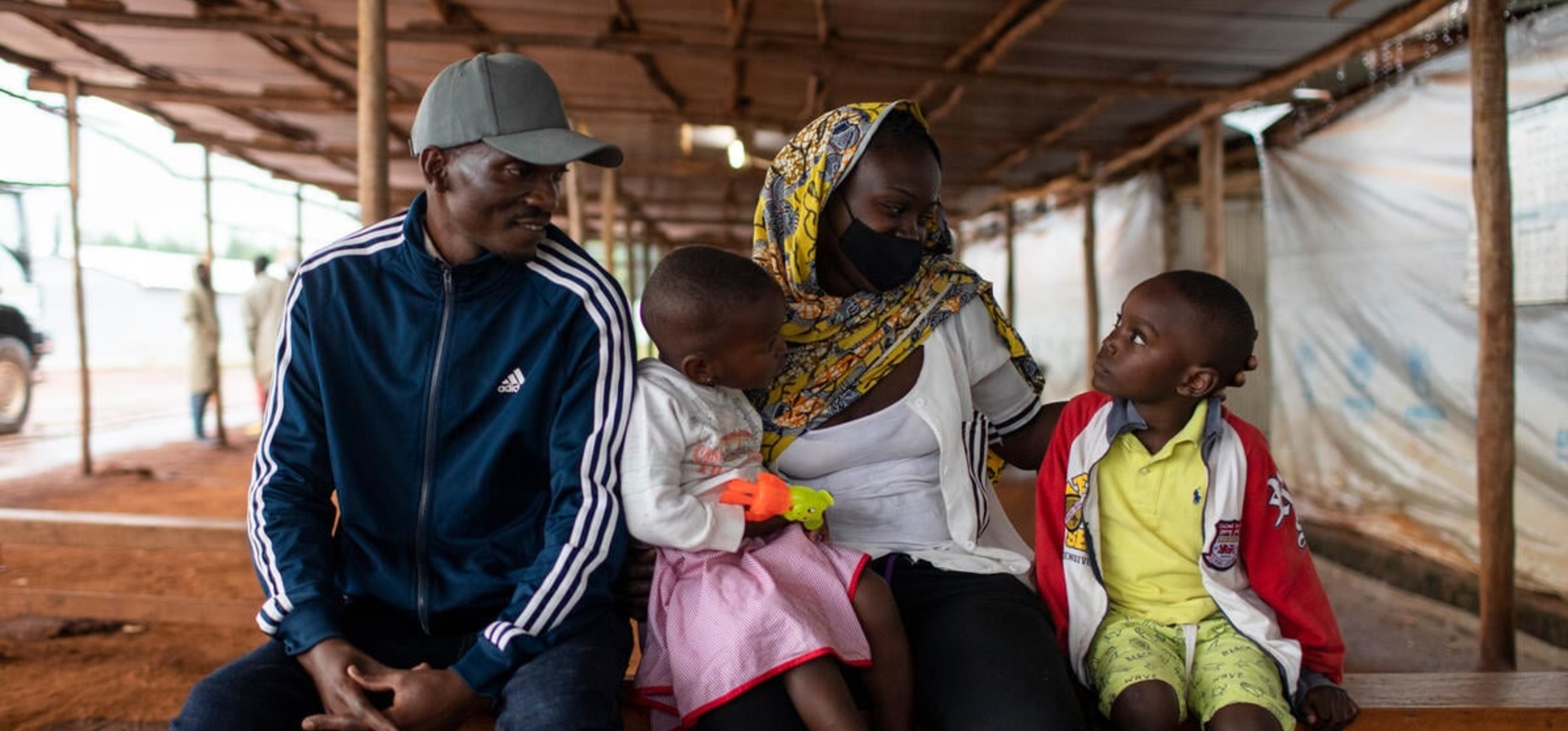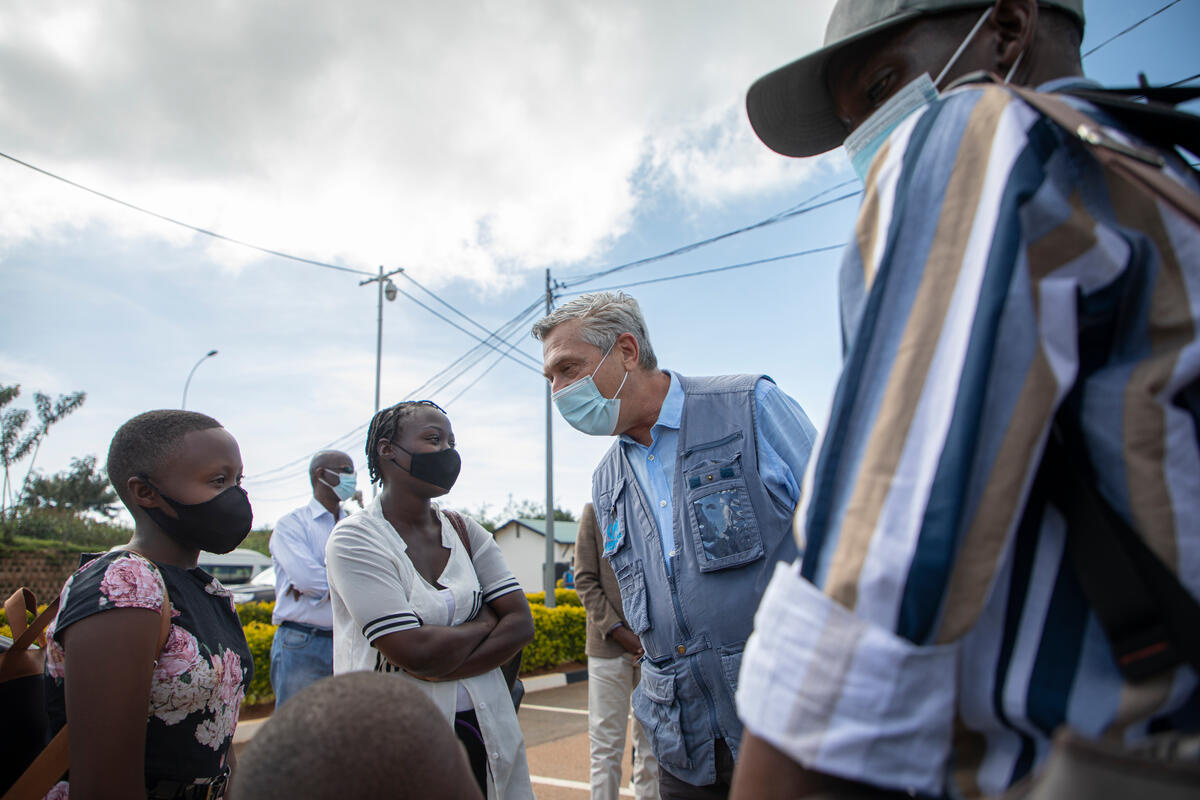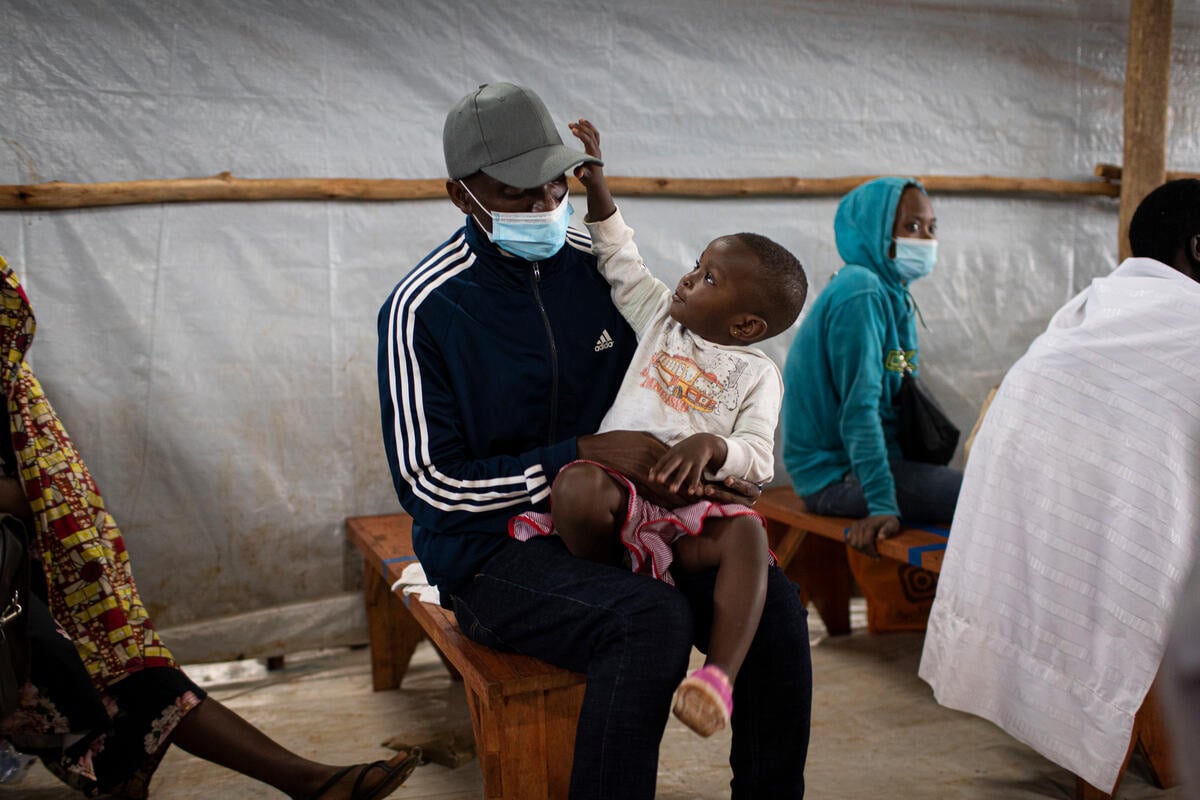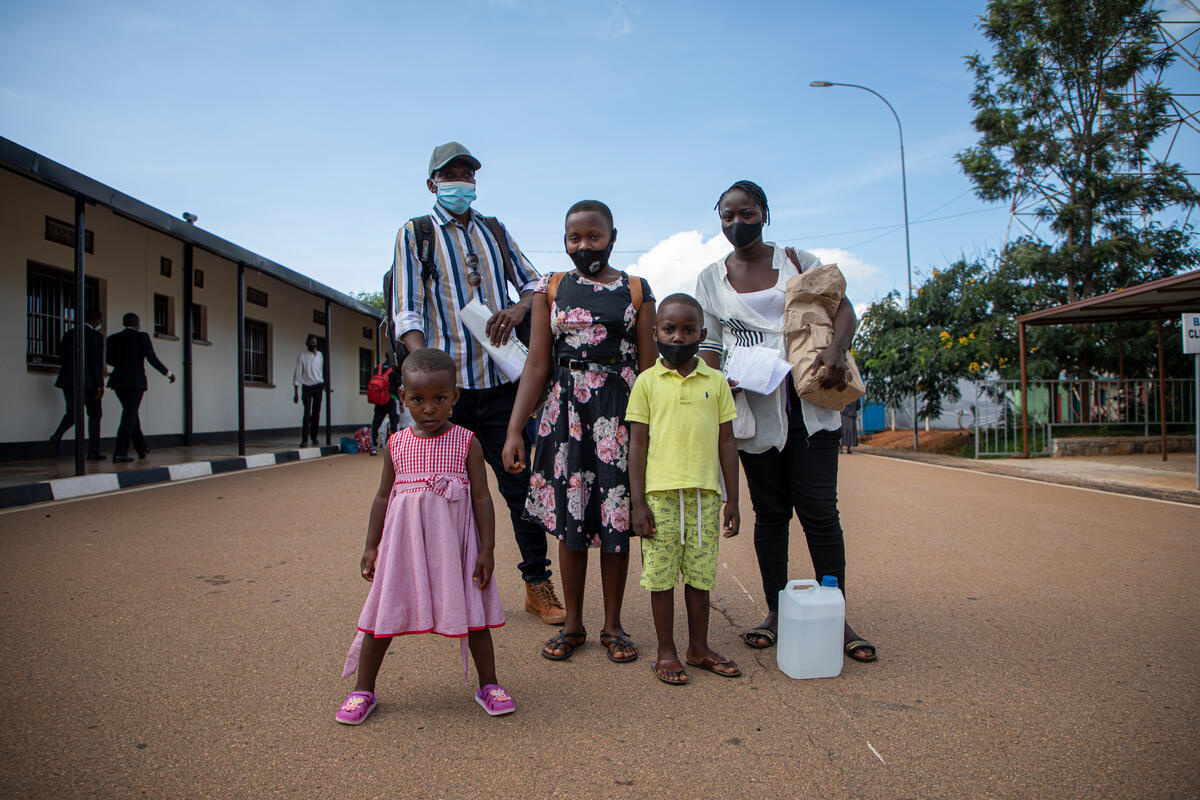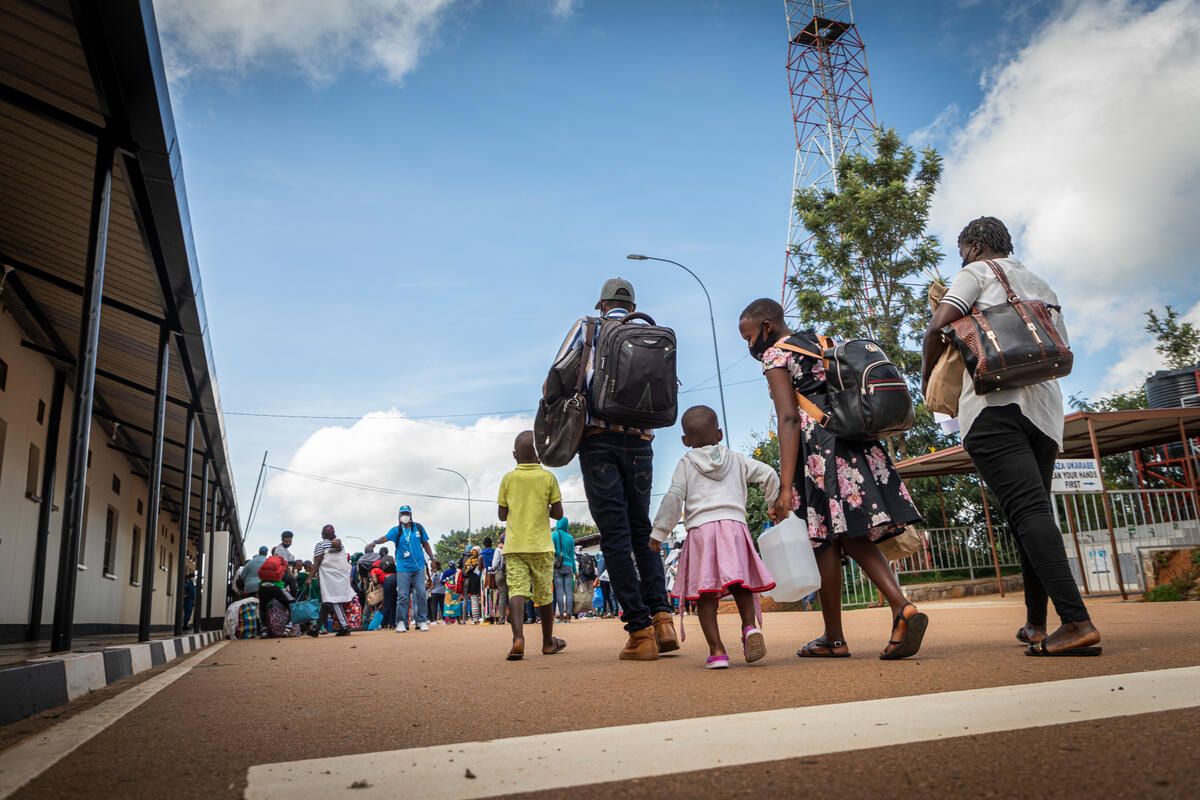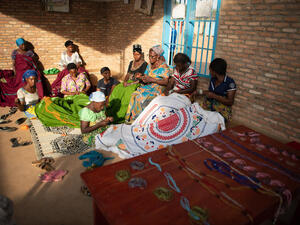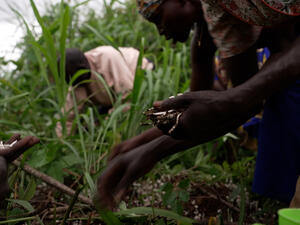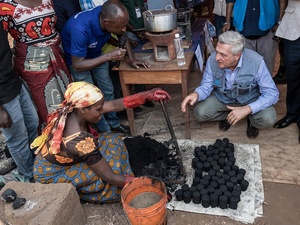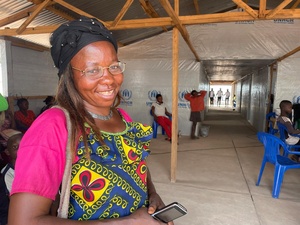Starting over is not easy but Burundian refugees are hopeful as they return home
Donatien, 35, is on his phone negotiating the rent for a house he hopes his family can move into when they return home to Burundi.
He and his wife and three children were among a group of 159 Burundian refugees who decided to return home – a 72-kilometre drive across the Nemba border point into Burundi.
“We have come home because a country is like a parent. When you are away from your parents, you feel like something is missing,” said Donatien, as he waited to go through COVID-19 testing and screening at the Kinazi transit center in Burundi.
Four years ago, he left everything behind when political violence displaced over 300,000 Burundians. He fled with his family to neighbouring Rwanda.
“I left my country because there was a lot that happened that caused people to scatter,” he said. “We kept talking to relatives, friends and neighbours who remained, to know what progress there was in our community.”
UNHCR, the UN Refugee Agency, is facilitating the return of Burundian refugees who have decided to go back home.
Since 2017, at least 145,000 Burundian refugees have been assisted to return home, with more than 25,000 coming from Rwanda in recent months. On average, 2,000 people are being assisted to voluntarily return each week from Rwanda, the Democratic Republic of the Congo and Tanzania.
UN High Commissioner for Refugees Filippo Grandi accompanied a convoy from Rwanda during a multi-country visit to the Great Lakes region. He spoke to families like Donatien’s who were aware of the challenges awaiting them but expressed happiness to finally be going home.
“We have come home because a country is like a parent.”
“What is now very important is that these returns are sustainable – those who want to go back to Burundi need to have access to basic services including jobs when they arrive,” said Grandi.
He also reiterated UNHCR’s commitment to continue facilitating the voluntary return of Burundian refugees, adding that it is crucial that the Burundian government ensures the conditions for a safe and dignified return that respects the returnees’ rights and aspirations.
“The return of refugees places great responsibility on the shoulders of the government, especially in ensuring security in areas of return,” he added, “and we all must work together to ensure that these returns are anchored in the country’s progress.”
During his visit, the High Commissioner met President Évariste Ndayishimiye. They discussed the importance of continuing to build conditions for refugees to return in safety and dignity. They also agreed that more support must be given to the communities to which refugees are returning, for reintegration to be successful.
In February, UNHCR, the government of Burundi and 19 partners launched the Joint Refugee Return and Reintegration Plan which appeals for US$ 104.3 million from the international community to assist returnees and the communities where they are returning.
Less than ten percent of the funding needed to support the reintegration of returnees in Burundi has been committed, despite the increase in the number of refugees returning from around the region.
Donatien is filled with anxiety but also expectation as he thinks about what the future will hold. He will receive a small grant to help his family settle back home and hopes to start a business to support his family.
“We hope the government has the courage and energy not to allow what happened in the past to happen again. Those coming back feel encouraged and need help to continue with their lives,” he said.


